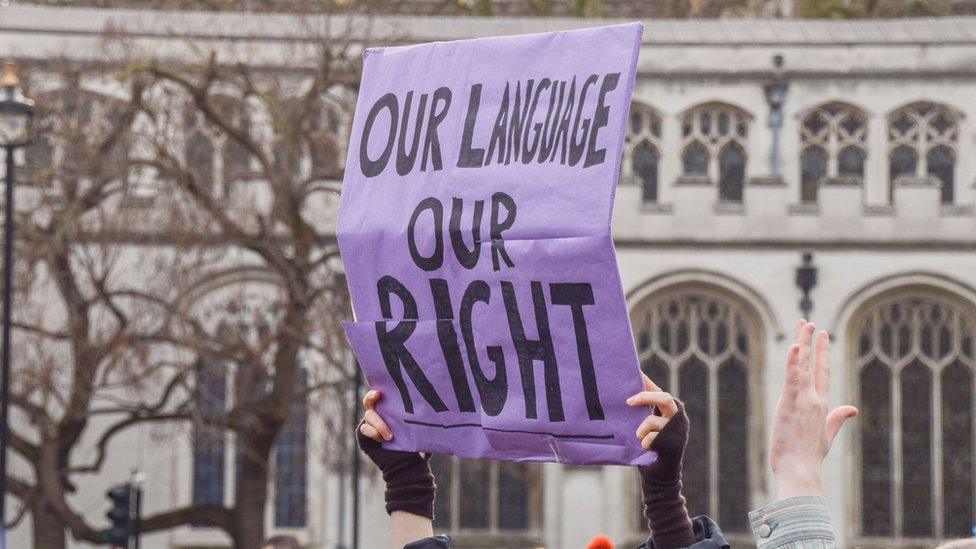British Sign Language set for legal recognition
- Published
- comments

The passage of the bill this year has seen supporters gather outside Parliament
British Sign Language (BSL) is set to gain formal recognition after MPs backed the proposal.
A bill requiring public bodies to promote the language will now go to the House of Lords, as it continues its journey to becoming law.
It will also recognise BSL as a language in its own right in England, Wales and Scotland.
The legislation, introduced by Labour MP Rosie Cooper, is being backed by the government.
Up to 250,000 people in the UK use some BSL on a daily basis, according to the British Deaf Association.
Disabilities Minister Chloe Smith said legally recognising it would help deliver better public services to deaf people. while creating "a more inclusive and accessible society, improving the lives of deaf people and helping public services to do it right".
The bill would require government departments to follow guidance on how the use of BSL can be put in place across services.
Although it will not allocate any new funds for BSL promotion, Ms Smith argued this issue was a "red herring", as the Equalities Act already ensures deaf people must have access to public services.

'Stronger presence needed'
"We need a stronger presence," says BSL user
Kelsey Gordon is currently directing an interactive performance co-produced by a theatre that specialises in plays acted in BSL.
The actor and stage director says deaf people "need a stronger presence" in the arts.
"We're tiptoeing our way through it at the moment, and we need to blast those doors open," she adds.
"BSL is our language, it is really important to have a deaf representative in the room."

Ms Cooper, MP for West Lancashire, grew up using BSL and said her bill was about "doing what is right" and would "begin the process" of giving deaf people "equal equal access to the essential services that everyone else takes for granted".
"No longer will they need to feel not heard, ignored and invisible," she added.
Ms Cooper has also backed an initiative under which MPs will be offered lessons to learn BSL.
MPs backed the British Sign Language Bill without the need for a vote.
- Published28 January 2022
